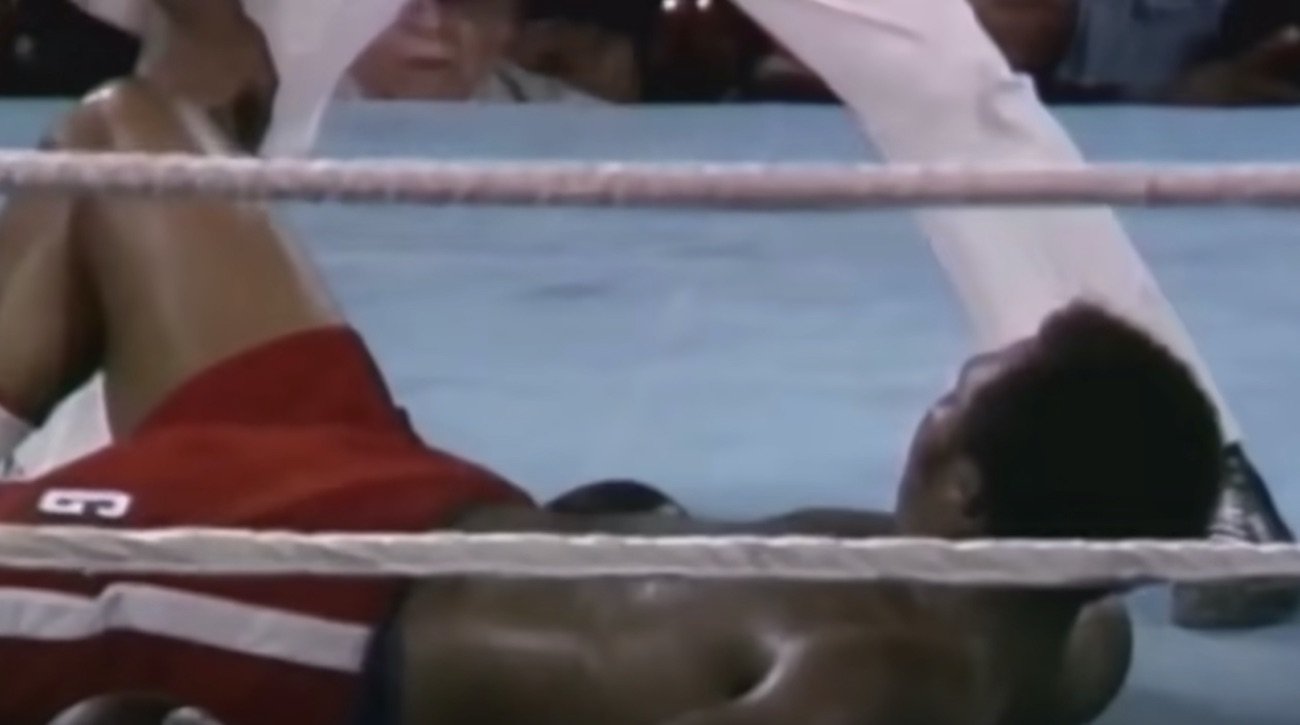Today marks the 46th anniversary of what is still the single biggest world heavyweight title fight in boxing history: the enormous Muhammad Ali Vs. George Foreman fight of October 30, 1974. Staged in the heart of Africa, with an estimated TV audience of 1 billion, the epic fight dubbed both “The Rumble in The Jungle,” and “From Slave Ship to Championship,” really did capture global attention.
Even people who had no interest in boxing tuned in. They had to. It was unmissable stuff. Could 32-year-old former champ Ali defeat the 25-year-old undefeated champion who many people were calling the single hardest-hitting heavyweight ever? Or would Texan monster Foreman club Ali to defeat the way he had Joe Frazier and Ken Norton; both of these men managing to defeat Ali yet get destroyed in a few minutes by the current king?
https://www.youtube.com/watch?v=ru3SljDTGRk
As much as Ali’s many millions of fans and admirers had great faith in their hero, believing that, yes, he would find a way to win, it was a very dangerous fight. In fact, it was the most challenging, risky and potentially disastrous fight of Ali’s career. How much did the 46-fight veteran have left? How would Ali’s remaining skills hold up against the sheer strength and power belonging to the 40-0(37) champion?
Imagine for a minute this fight taking place today. How many predictions would fans have been able to make via social media? How many rumours would have been swirling around before the fight, and then, especially, after Foreman got cut in Africa, the fight postponed for a number of weeks? Imagine all the theories modern days fans would have had after the fight!
As history tells us, Ali let Foreman punch himself out by laying on the ropes, employing his soon to be celebrated Rope-A-Dope technique, before coming on to land that dizzying combination in the eighth round to knock Foreman out. It was an audaciously risky move from Ali, allowing the powerful and brutal-punching Foreman to tee off on him. But looking at the fight closely lets you know how many of Foreman’s blows either missed, were deflected or were blocked. Looking back, Ali was in control of the fight all the way through (ahead on all cards).
Foreman basically had no Plan-B. After failing to get the quick knockout he was absolutely, positively certain he would get, Foreman didn’t know what to do. Failed by his corner, who gave George no instructions on how to pace himself, to take his time, to not waste his shots (which is astonishing considering the cerebral Archie Moore was in Foreman’s corner; Moore the man who had actually taught Ali the Rope-A-Dope, Archie calling it “The Turtle Shell”), Foreman simply emptied himself.
Ali was king again, his gamble of testing Foreman’s stamina paying off. It would have been a perfect time for Ali to retire, as he had said before the fight. Instead, Ali, now bigger than ever, fought on. One of the biggest questions in all of boxing is, what would have happened had Ali granted Foreman a rematch, in, say, 1976 or ’77? Would Foreman have learned from his mistakes and boxed far more smartly and conservatively in a return, and if so would Ali have had to have come up with a new bag of tricks with which to befuddle Foreman and beat him? We will never know, yet many fans find it odd that Ali – who gave almost every one of his big-fight opponents a return fight: Liston, Cooper, Patterson, Chuvalo, Quarry, Frazier, Bugner, Norton, Spinks – never fought Foreman again.
Was Ali’s big win in Zaire a one-shot deal, with the great man knowing it was? Maybe. But there is absolutely no taking it away from Ali: he was one incredibly special fighter, one who found a way to win when the odds were so heavily set against him. His magnificent win of 46 years ago shows this more than any other fight “The Greatest” ever had.
